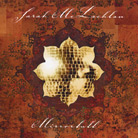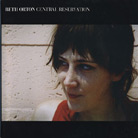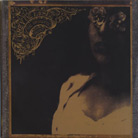![[SoundStage!]](../sslogo3.gif) The Vinyl Word The Vinyl WordBack Issue Article |
October 2005 Found on Vinyl: Sarah McLachlan, Beth Orton, and Grey De Lisle Once upon a time, the word "diva" meant something. Once upon a time, "diva" was uttered only after a legend had been created. Once upon a time, divas walked the stages of the world’s most celebrated venues, performing as sirens before men in tuxedos and spats, and women in pearls, silks, and satins. Once upon a time divas were considered exotic, remarkable, and singular. "Diva" used to be a term reserved for the female royalty of the operatic stage. Names like Birgit Nilsson, Joan Sutherland, Beverly Sills, and, of course, Maria Callas populated the minds of those lucky enough to attend their performances. Callas perhaps most personified this rare creature, possessing the beauty, voice, and charisma that earned her the title "La Divina." Today, "diva" seems to be a marketing term attached to any female wanting to sell her wares to an overly eager public. Everything from the Cooking Divas of the Food Network to the G-String Divas on HBO populate our world. Can any of these girls sing, or have I missed something? Although there may be a place in this world for such a variety of divas, I am quite pleased to announce that there seems to be no shortage of divas of the vocal variety. I recently had the pleasure of spending time listening to three of these ladies while spinning some new LPs released by Classic Records. All of these LPs are pressed on Classic's new Quiex SV-P 200-gram vinyl, which is said to mimic the old Blue Note pressings. There is no raised outer groove guard or inner label, and this is said to reduce distortions by keeping the record flatter. Comparing my 180-gram reissue of Muddy Waters' Folk Singer to a new SV-P version that I now own proved this to me. The most familiar of these sirens is Sarah McLachlan. I remember the first time I saw her in concert. A friend and I were lucky enough to have a pair of front-row seats. It was fairly early in her career, so the venue was on the small side. Toward the end of the show McLachlan walked up to the edge of the stage and sang a ballad to someone in the front row. We still can’t come to an agreement as to whom she was singing. She looked me straight in the eyes -- I swear she did.
Most of the songs are taken from the Fumbling Towards Ecstasy and Surfacing. As much as I absolutely loved both of these albums, they did at times feel a little over-produced. I often preferred the more stripped Freedom Sessions versions of the same songs. With Mirrorball you get much of the immediacy of Freedom Sessions. The band seems to have been given a more prominent role and a looser leash. I especially enjoyed the guitar work on "Good Enough" which really growls on this album yet is hardly present on the studio version. The band goes to town and produces a really fun and funky version of "Sweet Surrender." The ballads, such as "Angel," feel raw and emotional, jumping out from a quiet audience that must have been holding its breath. This is one of the best live recordings I’ve heard. Beth Orton is a tough one to categorize. "Rhythm-infused folk," "alternative-folk," "roots-trip hop," and "electronic roots" are all labels that fans and critics have tried to put on the music of this East London singer-songwriter. Details magazine said of Orton, "she’s a bummed-out angel in the badlands of love." Her songs tend toward the dark side of life; perhaps stark might be a better way to put it. She is a storyteller and sees life in all its stark beauty as well as its stark pain. Her songs may ring of heartbreak, but never with the heavy syrup we come to expect.
If Orton is tough to categorize, the tracks on Central Reservation showcase her obvious comfort with a variety of styles. "Stolen Car" is a haunting number that pairs Orton’s haunting, husky voice with the muted growl of Ben Harper’s electric guitar. In "Sweetest Decline," Orton incorporates Dr. John on piano against a whimsical string section to create something I can best describe as a flower-child ballad. Move on to "So Much More" for a spacey, ethereal, incense-burning kind of trip complete with wind chimes. "Stars Seem to Weep" is a fantastic trip-hop club number, complete with synthesized soundscape, and echoes of the likes of Mazzy Star. With all this genre-mixing going on, one only needs to listen to the stripped-down "Blood Red River" with Orton and her guitar to find out what makes her so appealing as an artist. Her voice is at once haunting and alluring, and makes it easy to fall for her. The recording is pristine for the most part, and with only three tracks per side you won’t have to worry about the pinch grooves. If you haven’t experienced the spell of Beth Orton, this would be a great place to start.
None of this happened by accident, as this was exactly the feeling that De Lisle, a self-avowed audiophile, set out to capture. Recorded in her living room and surrounded by her family, The Graceful Ghost is a collection of folk, gospel and Americana that transports the listener back 150 years. Unlike modern country or folk singers, who only seem to echo the past, De Lisle has made the journey. The band consists of Sheldon Gomberg on stand-up bass, husband Murry Hammond on guitar and yodeling, and producer Marvin Etzioni on everything from banjolin to an 1800s vintage pedal harmonium. The recording is stripped to its bare essentials for a raw, live feeling reminiscent of the Cowboy Junkies and The Trinity Session. The album begins, appropriately enough, with the winding of a music box, and what a music box it is. What follows is a somewhat dark collection of songs about treachery, tragedy, life, death, love lost, and love found. "The Maple Tree" is a tragic song of a mistaken report of a death in battle and the dire consequences that follow. The first side ends with a Civil War love letter read by De Lisle and recorded on an acetate blank of a 1949 Rek-O-Cut recorder, lending to the atmosphere of a time long past. "Katy Allen" is a dirge complete with the aching sound of harmonium providing the needed melancholy for this tale of a tragic drowning. "The White Circle on My Finger" is the only song on the LP not written by De Lisle. This cover, made famous by Kitty Wells, showcases how well De Lisle can manipulate every word she sings, tugging the listener down an emotional trail. Perhaps my favorite of the bunch is "Sawyer," a song that rings like a pre-Civil War spiritual. De Lisle almost shouts the lyrics of this anthem to the workingman, while Gomberg uses the upright bass as much as a percussion instrument as for melody. What makes this song so completely haunting is the sound of a freight train quite clearly, yet quite far off, in the distance. Real audiophile demo material here. Yes, today the term diva is often used inappropriately. If not for marketing the femme fatale of the moment, then it is certainly attached to far too many marshmallow pop idols, whose looks often outweigh their talent. Yet the diva does still exist. I doubt that Sarah McLachlan, Beth Orton or Grey De Lisle would feel comfortable with the title. Perhaps that only adds to their allure. Great writing, great singing, great vinyl. Don’t choose -- get all three. ...Bill Brooks |
|
![[SoundStage!]](../sslogo3.gif) All Contents All ContentsCopyright © 2005 SoundStage! All Rights Reserved |
 Mirrorball [Classic
Records RTH-2010] is a live recording taken from McLachlan’s 1998 Lilith Fair tour.
Lilith Fair was a tour conceived and implemented by McLachlan that featured the talents of
female performers from around the world. Bad live albums are really bad, with lots of
irritating noise, compressed sound, and poor performances. On the other side of the coin
are works such as Mirrorball that give you an "I’m there"
performance and "I’m there" sound quality.
Mirrorball [Classic
Records RTH-2010] is a live recording taken from McLachlan’s 1998 Lilith Fair tour.
Lilith Fair was a tour conceived and implemented by McLachlan that featured the talents of
female performers from around the world. Bad live albums are really bad, with lots of
irritating noise, compressed sound, and poor performances. On the other side of the coin
are works such as Mirrorball that give you an "I’m there"
performance and "I’m there" sound quality. On Central
Reservation [Classic Records RTH-2011], Orton shares some reflective gems. Perhaps the
recent death of her mother or her personal battle with Crohn’s disease led her down a
more introspective path. Melancholia-tinged ballads like "Couldn’t Cause Me
Harm" echo of the significant challenges that Orton was dealing with at the time.
On Central
Reservation [Classic Records RTH-2011], Orton shares some reflective gems. Perhaps the
recent death of her mother or her personal battle with Crohn’s disease led her down a
more introspective path. Melancholia-tinged ballads like "Couldn’t Cause Me
Harm" echo of the significant challenges that Orton was dealing with at the time.  Yes, I have
saved the proverbial best for last. If any album has absolutely floored me in the last
year or so it would be The Graceful Ghost by Grey De Lisle [Classic Records SUG-LP
3985]. The Sugar Hill Records site says it best: "Imagine the original Carter family
band with early ‘70s-era Dolly Parton singing lead." Also imagine the same
family playing their hearts out, up in the hill country, out on their back porch. Now
bring to the picture a whole slew of analog/tube recording gear, set up to capture the
experience in audiophile-quality sound, and you begin to see where I’m heading here.
Yes, I have
saved the proverbial best for last. If any album has absolutely floored me in the last
year or so it would be The Graceful Ghost by Grey De Lisle [Classic Records SUG-LP
3985]. The Sugar Hill Records site says it best: "Imagine the original Carter family
band with early ‘70s-era Dolly Parton singing lead." Also imagine the same
family playing their hearts out, up in the hill country, out on their back porch. Now
bring to the picture a whole slew of analog/tube recording gear, set up to capture the
experience in audiophile-quality sound, and you begin to see where I’m heading here.